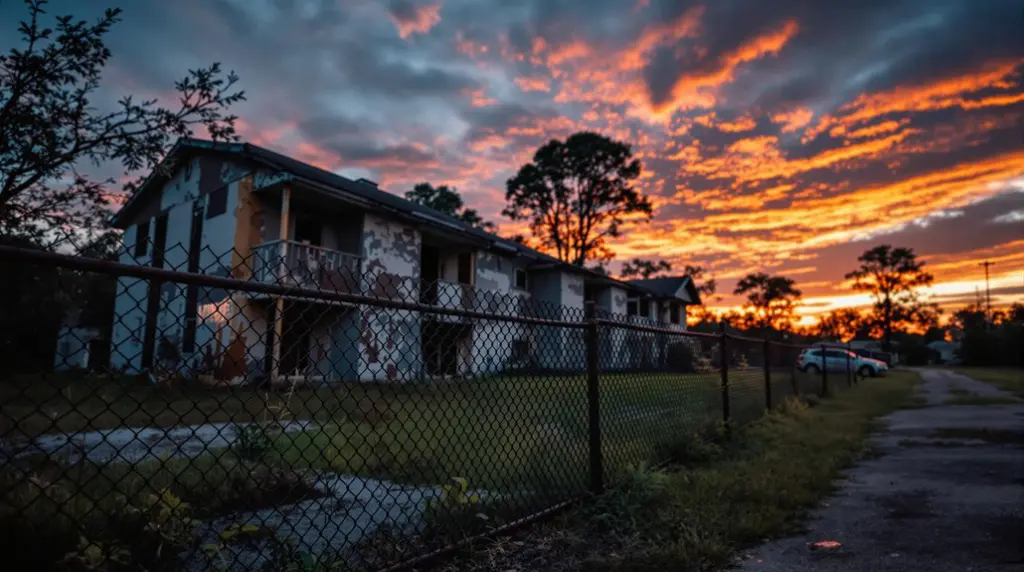Key Takeaways
Canadian snowbirds are rapidly selling off U.S. vacation homes due to political conflict, high costs, and new travel regulations.
Florida and Arizona face major economic consequences as Canadian rental and homeownership demand sharply declines.
Currency weakness, tariffs, and new immigration policies are accelerating the Canadian exit from traditionally strong U.S. snowbird markets.

Maple Migration of Malcontent: The 5 Stages of Leaving
Canadian homeowners are ditching U.S. real estate in record numbers—and it’s shaking up markets across Florida, Arizona, and California.
Once a seasonal ritual and economic boon, the Canadian snowbird migration is reversing, and it’s sending shockwaves through the real estate investing world.
What’s fueling the exodus?
Trade wars, travel restrictions, political hostility, and collapsing currency value are causing thousands of Canadians to sell off their winter properties. U.S.-based investors, take note—this could mean discounted deals or destabilizing losses.
Is this temporary turbulence or a permanent breakup?
Here’s what’s unfolding, why it matters for your portfolio, and where the buying opportunities—or collapse—could hit next:
1. A Political Firestorm Has Triggered a Property Sell-Off
Canadians once flocked to U.S. sunbelt states as a winter haven. But in 2025, many feel unwelcome.
President Trump’s 25% tariffs on Canadian goods, open talk of annexing Canada, and fingerprint-based immigration rules for stays over 30 days have left many feeling betrayed.
Real estate agents from Palm Springs to Fort Myers are reporting an explosion in Canadian sellers and near-zero new buyers.
“We’re not coming back next year because of what the U.S. is doing,” said Bob Weir, a longtime snowbird from Parry Sound.
Alexandra DuPont, a Florida broker, is working with 35 Canadian sellers—triple the norm.
Laurie Levine, a Phoenix-area agent, says his Canadian client count “jumped from 2 to 18.”
Sheri Dettman in Palm Springs noted that “tariffs talks alone sent sellers running.”
2. Florida and Arizona Housing Markets Are Teetering
This isn’t just a Canadian story—it’s an American housing crisis in disguise.
- 13% of all U.S. foreign home purchases in 2024 came from Canadians
- In Florida, Canadians accounted for 25% of all foreign sales
- In Arizona, over 800,000 Canadian visitors spent $750 million annually
Real estate agents report Canadians selling at a loss, pulling out early, and canceling rentals, creating surplus inventory and falling demand.
“The Canadian market for rentals is just done,” said Florida agent Share Ross. “Some are selling at any cost—even taking losses.”
3. The U.S. Economy Stands to Lose Billions
This exodus is more than emotional—it’s financial devastation in slow motion.
A 10% drop in Canadian travel equals:
- $2.1 billion in lost U.S. revenue
- 14,000 American job losses
- A 70% plunge in air travel bookings from Canada to the U.S.
- Massive reductions in seat availability by major airlines
RELATED CONTENT
Florida and Arizona—both deeply reliant on snowbird economies—are most at risk, with restaurants, hotels, healthcare, and even local governments bracing for impact.
Cole Peacock, a Florida business owner, put it bluntly:
“You need those extra visits to kick that profit margin to another level.”
4. A Currency Crash Pushes Canadians to Cash Out
The Canadian dollar has hit its lowest level since 2003, slashing buying power and increasing U.S. costs for food, gas, and insurance.
This has created a financial incentive to sell U.S. property, convert to CAD, and reinvest back home or abroad.
“People are cashing in and converting back to Canadian dollars,” said Arizona Realtor Miles Zimbaluk. “We’ve seen a big uptick in sales requests.”
Add to that Florida’s skyrocketing insurance premiums and climate risks, and even Americans are rethinking Sunshine State ownership.
5. Mexico, Portugal, and Costa Rica Are the New Escape Routes
Canadians aren’t abandoning the snowbird lifestyle—they’re just relocating it.
Destinations like Mexico, Portugal, and Costa Rica offer:
- Warm climates
- Cheaper living costs
- More welcoming travel policies
- No mandatory immigration registration
International real estate firms are already seeing increased Canadian interest in Central America and Europe as alternatives to U.S. property ownership.
Assessment
This Canadian real estate retreat is more than a diplomatic fallout—it’s a flashing red signal for U.S. real estate investors.
States like Florida and Arizona could see inventory spikes, weakened seasonal demand, and declining property values in snowbird-heavy markets.
But for savvy investors, this crisis is also an opportunity.
- Monitor Canadian-heavy zip codes for motivated sellers
- Anticipate price drops in seasonal rental markets
- Watch for demand shifts toward less politically sensitive destinations
Whether this is a short-term storm or a long-term shift depends on policy, perception, and currency stabilization.
But one thing is clear—a new era of cross-border investing has begun, and the old snowbird model may never return.





















